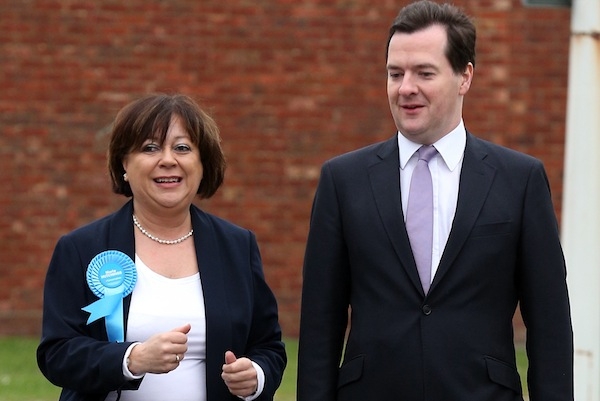Alarming news reaches this blog from the Eastleigh by-election, where the battle has descended into a catfight about a policy the two main parties support at national level. How unusual for parties to detach themselves from their own policies when a prize seat is in sight: this time round it’s the Lib Dems and Tories fighting over a development of new homes in the area on greenfield land.
The Lib Dem leaflets promoting Mike Thornton say ‘residents are angry with the Conservatives for putting green fields under threat from big builders’. The Tories backing Maria Hutchings point out that Thornton and his Lib Dem colleagues on the council voted in favour of the local plan for Eastleigh, which includes provisions for up to 4,700 new homes on greenfield land. Oddly enough, both parties at a national level backed the government’s Localism Bill and coalition ministers in the Communities and Local Government department worked together to develop the National Planning Policy Framework.
Fighting a by-election on protecting green spaces is hardly a new tactic. But it’s still disappointing as at a national level both parties have been outspoken on the need for more homes to solve this country’s housing crisis. Pollsters will point out that it’s also all about the framing of the arguments. Turn up on the doorstep and tell someone their area is about to get a new development of homes and they’re unlikely to react well. Tell them that new homes are being built in their area so that their children can afford to stay there and they’ll be much more positive.
In Eastleigh, research by housing charity Shelter found rents rose by £289 between October 2011 and September 2012: a rent inflation of 3.2 per cent while wages rose by just 1.5 per cent, and house prices in the constituency are 7.76 times the average wage, as opposed to 6.65 nationally. Yet just 220 new homes were started in Eastleigh in 2011/12, down from 310 the previous year.
I had a conversation with a Tory MP recently which underlined this. We’d been discussing some of the problems with the ‘bedroom tax’, and the concerns that this MP had about cutting housing benefit for the under-25s. But a little later, we started talking about development. The MP said they would vote against any plans to water down protections for greenfield sites because they ‘believed in the green belt’. They didn’t see the connection between the two: if you keep taking away with one hand so that house prices and rents rise as a result of the housing shortage, there comes a point where the state cannot afford to keep giving with the other hand in the form of housing benefit to cover those soaring rents. I also always wonder when someone says they ‘believe in greenfield’ whether they realise how arbitrary the designation for greenfield actually is: the quality of the landscape is not relevant to whether land is included within a green belt (you can read the criteria here), and research suggests 60 per cent of the green belt is actually devoted to intensive farming.
Of course, it’s naive to expect candidates to start knocking on the doors of Eastleigh constituents and engage them in an argument about housing demand, just as it would be foolish (but perhaps not impossible) for Ed Miliband to pitch up at a local market stall and tell shoppers ‘I want to talk to you today about pre-distribution’. The other big fight in this very local by-election is, after all, about a gravel pit. But this scrap is a useful foretaste of the sort of campaigns other Tories and Lib Dems will run in 2015. Though it is laudable for a minister to speak from an ivory tower about the housing shortage being the greatest threat to social justice, it is far more tempting at constituency level to talk about ‘protecting green spaces’.







Comments